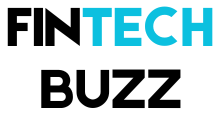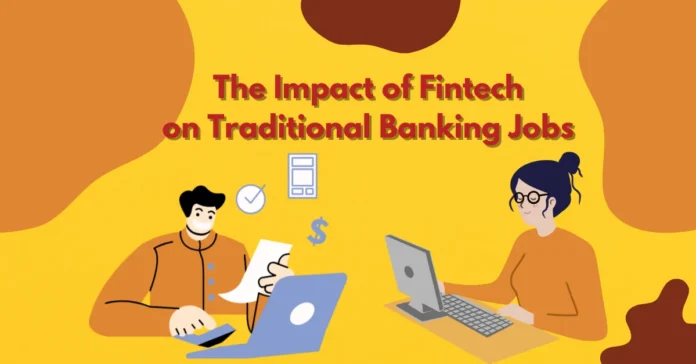As the fintech industry continues to evolve at an unprecedented pace, its impact on traditional banking jobs is becoming increasingly apparent. The rise of digital banking, automated financial services, and innovative financial technologies has disrupted the way financial institutions operate, creating both opportunities and challenges for employees in the banking sector.
Here’s a closer look at how fintech is reshaping the job market in traditional banking and what this means for the future of work in financial services.
1. Automation and Job Redundancy: Replacing Repetitive Tasks
One of the most significant ways fintech is affecting traditional banking jobs is through automation. Technologies like robotic process automation (RPA), artificial intelligence (AI), and machine learning have streamlined many routine, manual tasks that were once carried out by human workers. These tasks often include:
- Data entry
- Fraud detection
- Compliance checks
- Customer service inquiries (via chatbots)
For example, many routine operations within banks, such as processing loan applications, are increasingly being automated. While automation has improved efficiency and reduced costs for banks, it also means that positions in areas like clerical work and administrative support may become obsolete.
Impact:
- Job displacement: Roles such as data entry clerks, loan processors, and administrative assistants are most vulnerable.
- Job evolution: Employees in affected roles will need to reskill to work alongside new technologies or transition to more value-added tasks.
2. The Rise of Digital-First Banks and Neobanks: Changing Job Dynamics
Neobanks (digital-only banks) and other fintech startups are reshaping the competitive landscape by offering services without the need for physical branches. This shift has several implications for traditional banking jobs:
- Branch closures: As customers increasingly use mobile apps for banking services, traditional bank branches are becoming less critical. Many banks are closing branches, reducing the need for tellers, branch managers, and other in-branch staff.
- New skill sets: On the other hand, the rise of digital-first banks has created demand for employees with expertise in technology, cybersecurity, and data analytics. This is particularly true for fintech startups that operate in areas like peer-to-peer lending, mobile payments, and digital wallets.
Impact:
- Decline in in-branch roles: Positions such as branch managers, tellers, and customer service representatives will likely continue to diminish.
- Shift toward tech-focused roles: Banks are hiring more people with backgrounds in software development, data science, and cybersecurity, making digital and IT skills more essential than ever.
3. Enhanced Customer Experiences: Shifting the Role of Relationship Managers
Fintech companies are redefining customer service by offering faster, more personalized experiences. AI-powered tools, for example, enable banks to tailor product offerings based on individual customer data, while chatbots provide 24/7 support. As fintech solutions improve customer experiences, traditional banking relationship managers are facing a shift in their role.
- Focus on value-added services: Traditional banking relationship managers, once focused on handling transactional tasks, are increasingly being called upon to provide high-value services like financial planning, investment advice, and tailored banking solutions.
- Hybrid models: Some banks are creating hybrid models where human advisors work alongside AI systems to provide a more efficient and personalized service.
Impact:
- More advisory roles: Relationship managers will need to transition into roles that focus on financial advising, wealth management, and personalized customer service.
- Integration of fintech tools: Employees will need to become proficient in using AI and fintech tools to enhance their service offerings and improve customer interactions.
4. The Emergence of New Roles: Fintech-Savvy Professionals
While fintech has caused disruption in certain areas, it has also created new opportunities. Banks are increasingly looking for talent with fintech expertise to help them navigate this evolving landscape.
- Data scientists and analysts: As banks collect and analyze more data, there is a growing demand for professionals who can extract actionable insights to guide decision-making.
- Cybersecurity experts: With the rise of digital banking, ensuring the security of financial transactions has become critical. Banks are hiring cybersecurity professionals to protect against data breaches and fraud.
- Blockchain developers: As blockchain technology becomes more mainstream in the financial sector, there is an increasing need for developers who can build and manage distributed ledger systems.
Impact:
- Upskilling: Professionals in traditional banking roles will need to acquire new skills, especially in data analysis, blockchain, and cybersecurity.
- New career paths: Fintech-savvy employees with technical skills are highly sought after, which could lead to a shift in talent migration from traditional banking to fintech startups or even from banking roles into tech-driven positions.
5. The Role of Regulation and Compliance: Navigating the Legal Landscape
With the rise of fintech comes an increased need for regulatory compliance and risk management. Regulatory technology (RegTech) is being adopted to help banks meet these challenges, but it also creates a shift in the demand for compliance professionals.
- Tech-enabled compliance: Automated compliance tools can help banks meet regulatory requirements with minimal human intervention, reducing the need for manual compliance teams.
- Evolving regulatory landscape: As fintech grows, regulators are introducing new laws and frameworks, creating demand for professionals who can interpret and ensure compliance with these evolving regulations.
Impact:
- Compliance automation: The need for compliance officers may decrease as more automated systems handle compliance tasks, but there will be greater demand for professionals who can manage and interpret complex legal frameworks related to fintech.
- New career paths in RegTech: Fintech companies and banks are hiring regulatory technology experts to help them stay compliant with regulations in an increasingly tech-driven financial world.
6. Employee Experience and Organizational Culture: Adapting to Change
As banks adopt fintech solutions and shift to more digital models, their organizational culture and internal job structures will evolve. This can affect the employee experience in several ways:
- Cross-disciplinary teams: The need for collaboration between IT professionals, financial experts, and legal teams is becoming more pronounced. As a result, banks are embracing agile work environments and cross-disciplinary collaboration.
- Remote work: Many fintech-driven banking services are digital-first, allowing employees to work remotely. This could lead to greater flexibility and work-life balance for employees in the banking sector.
Impact:
- Cultural shift: Traditional banks are having to adapt to a more tech-focused and agile working environment, which could require changes in management styles and employee expectations.
- Upskilling and reskilling: Employees must embrace continuous learning to stay relevant in a rapidly evolving job market.
Conclusion: The Future of Banking Jobs in the Age of Fintech
The rise of fintech is transforming the landscape of traditional banking, creating new job opportunities, and rendering some positions obsolete. While automation and digital transformation are leading to a decline in certain roles, they are also creating demand for new skill sets in data analytics, AI, cybersecurity, and blockchain.
For banking professionals, the key to navigating this shift lies in reskilling and embracing technology. Those who can adapt to the new technological landscape—by acquiring skills in fintech, data analysis, and digital tools—will find themselves well-positioned to thrive in the evolving financial services ecosystem.
In the long run, fintech’s impact on banking jobs will likely result in a blended workforce, where traditional financial expertise and advanced technological skills coexist, leading to more efficient, customer-centric, and innovative banking experiences.


